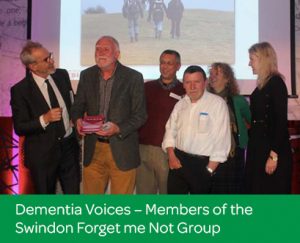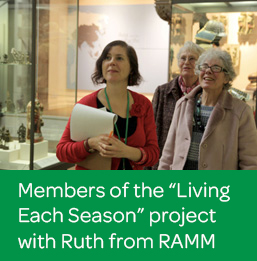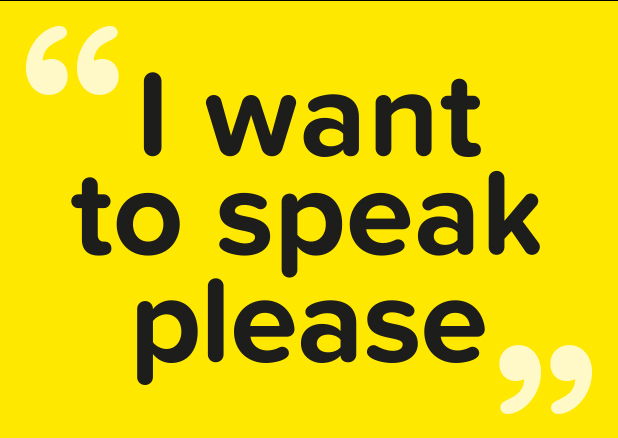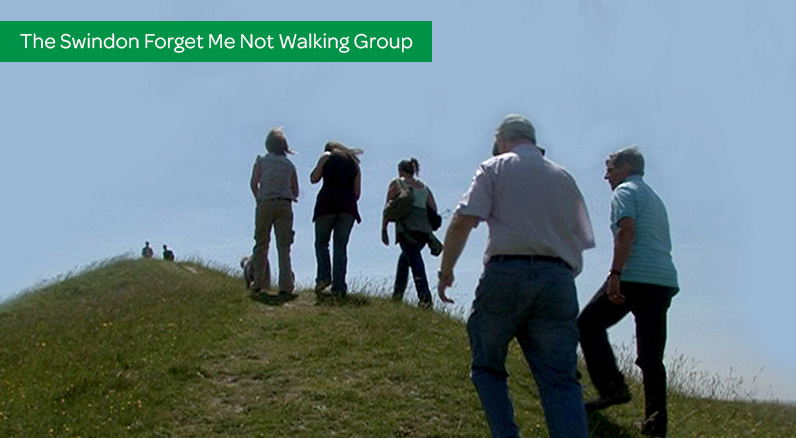
Innovations in Dementia timeline
A timeline of Innovations in Dementia – our journey so far.
2007
Innovations in Dementia CIC is founded by Nada Savitch and Rachael Litherland.
Steve Milton joins later in the year.
Nada Savitch set up Innovations in Dementia with Rachael in 2007. Nada had a background in IT and so led our work finding ways to use technology to support people with dementia. Nada also kicked off our work on dementia friendly communities, and was looking for ways to make the world an easier place for people with dementia long before it became mainstream. But most of all, Nada connects with people. Always outspoken and direct, she never minces her words, but manages somehow to combine this with an infectious warmth and humour. …..and right from the start people responded to this and reciprocated, especially people with dementia. We always referred to Nada as the heart and soul of Innovations, though not to her face, which would have been embarrassing for all of us.
Nada made an enormous contribution to Innovations in Dementia, and to the lives of people with dementia. Although she moved on in 2016 her influence and legacy is with us every day.
2008
Rights / Accessibility
- We start our work on a rights-based approach to dementia – asking to people to let us know about their views and experiences.
- We publish a small article suggesting that dementia should be viewed as a disability, and encouraging the use of the social model as a way of thinking about how people with dementia ‘fit’ within their communities.
- We receive funding from Big Lottery to help us develop “Start Making Sense”, a project looking at how information could be made more accessible.
- We start working with the London Metropolitan Police, training specialist officers working to support people with dementia to have better access to the criminal justice system.
Dementia Voices
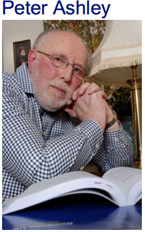
- Peter Ashley becomes our first associate with dementia. Peter died in 2015 but we will never forget him, and his influence lives on in our work today.
- We start work on a video project supporting people with dementia to make videos to help others recently diagnosed or living with dementia.
- We set up the first version of ThinkTank – a group of people with dementia who help and advise our work.You can watch a video about this here:
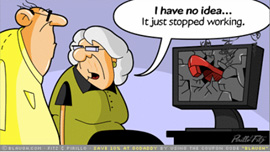
Recovery and Discovery
- We start work with Housing 21 on a project supporting people with dementia in day centres to use computers.
2009
Accessibility
- We work with a person with dementia testing out the responses of high street travel agents to people with dementia.
- We start our first project on dementia friendly communities – working with a village in Surrey.
Recovery and Discovery
- We start work on ‘Switched on Communities’ – with AbilityNet, looking at how people with dementia use different kinds of computer equipment.
- We work with Trent Dementia Services Centre and the Disabled Living Foundation, to support the development of an improved online directory to help people with dementia.You can see the at Dementia directory here: https://bit.ly/2HBTB92
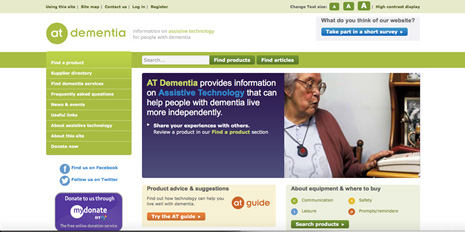
2010
Accessibility
- We start work on a commission for the Department for Health – looking at the concept of ‘dementia capable communities’ – and what that means to people in urban, rural and suburban areas.
Dementia Voices

- We launch the films we started making with people with dementia in 2008 – during the course of the project these had morphed from video ‘information leaflets’ abut dementia into something completely different. People with dementia told us that they were “so bored’ of talking about their dementia and wanted to make films about the things that interested them in-stead.The four films that result send out a much more powerful message about living well with dementia than if we had stuck to our plans. The films continue to be used in training to get across a variety of messages about living well.You can see them here
- We work with the new College for Social work – looking at what people with dementia want from social workers.
Belonging
- We start a new project in partnership with Shared Lives South West – looking at how adult placement could be used to support people with dementia. You can read the final report here: https://bit.ly/2vQW65X
Recovery and Discovery
- We deliver a conference for Trent Dementia Services Development Centre in Derby celebrating the creativity of people with dementia. The films are shown, and Steve is part of a band formed from members of the Swindon Forget me Not Group performing a socially adapted version of “Delilah’ by Tom Jones – turning it into a darkly comic exploration of dementia.
- We go for a walk with the Forget me Not group and Clare Balding for an episode of the radio 4 programme Ramblings.You can hear that here: https://bbc.in/1bZsCwT
2011
Accessibility
- Our work on ‘dementia capable communities’ is launched at a Department of Health meeting looking at dementia and the ‘Big Society’.
- Later in 2011 we start working with AESOP on a JRF funded programme called Dementia Without Walls – how to make York a better place for people with dementia.
- We also begin a commission for the Local Government Association to support the development of dementia friendly communities in Sheffield and Hampshire.
Dementia Voices
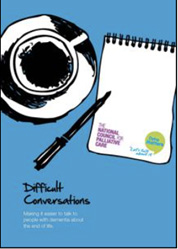
- We work with the National Council for Palliative Care on a new leaflet helping health and social care staff to have ‘difficult conversations’ about end of life care and dementia.You can read more about this here: https://bit.ly/2HzflGn
- We launch a new project, ‘Our House’ about giving people with dementia living in care homes a bigger say in decisions that affect them.Read more about his project here: https://bit.ly/2HzgC07
- DEEP – the Dementia Engagement and Empowerment Project is launched – working with the Mental Health Foundation. This early work is about mapping the groups of people with dementia in the UK that are working at a local level to influence change.
- Building on the success of our films made with people with dementia, we run a 2 day workshop for people with dementia from Age UK Woodley in Berkshire – showing them how to use video to get their voices heard. This results in a guide to using video, which you can download here: Telling our stories…and you can see the film the group in Woodley make here:
Belonging
- Another new project in 2011 looks at how Circles of Support might be used to help people with dementia to live well – working with the National Development Team on Inclusion.You can read more about this work here:
https://bit.ly/2r2pNMf
Recovery and Discovery
- We launch a new guide with Foundation for Assistive Technology and Trent DSDC – “Getting equipped to tackle forgetfulness – top tips” Click here to view pdf
- We support a number of finalists in the Design Council Challenge to design products to support people with dementia. You can read more about one of them here: https://bit.ly/1gkJ6Y4
2012
Accessibility
- We start working with Alzheimer’s Society Ireland, supporting them to develop their work around dementia friendly communities. You can read the report here: https://bit.ly/2r3yyF7
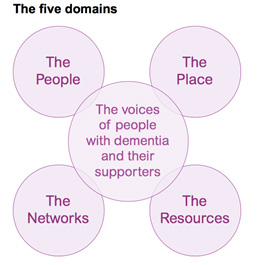
- The report into our work on dementia friendly communities in Sheffield and Hampshire is published by the Local Government Association. As well as laying out for the first time the ‘Five Domains’ approach to developing DFCs, it also contains a toolkit of resources that could be used and adapted at a local level.
- We begin working with Age UK to help them make their services more accessible to people with dementia. For the next three years we will work, along with our good friends Dementia Adventure, with more than 60 local Age UKs. We support services to create local plans to address their environments, their in-house training, and published materials.You can read more about this work here:
https://bit.ly/2qZ23sz
Dementia Voices
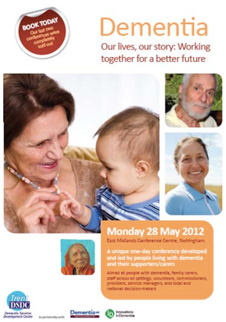
- We run a conference with Trent DSDC and Dementia UK Dementia Our Lives Our Story – an event designed by people with dementia and carers.
- The DEEP Project – We run 2 national events for people with dementia in London and Stockport.
- With the support of Joseph Rowntree Foundation DEEP enters phase 2 – which is about supporting the development of new groups of people with dementia.
Recovery and Discovery
- We work with Aunhead Arts in Devon on a project called EVA (Elder Voices on the Air), in which people with dementia interview each other about their lives and experiences.
- The Social Policy Research Unit at the University of York starts an evaluation of life story work for people with dementia. In partnership with Uniting Carers (part of Dementia UK) we make sure that people with dementia and carers are involved in many aspects of the project, including being part of a network of project advisers.You can read the final report, published in 2016 here: https://bit.ly/2Fmk08x
2013
Accessibility
- We join forces with the Bath Institute of Medical Engineering (BIME) to start a new venture called Valued Voices, to encourage designers, engineers and technologist to listen to the voices of people with dementia.
- By the end of 2013 the Dementia Friendly Community toolkit we launched in 2012 is being used and adapted in dozens of locations around the UK and worldwide, including in Australia and the USA.
Dementia Voices
-
- We work with people with dementia on a a new part of the Dementia Gateway – a website produced by the Social Care Institute for Excellence. This new section “getting to know the person with dementia” is scoped and designed by people with dementia.You can see it here: https://bit.ly/2I5JLgk We are partners in making the accompanying video with the Forget me Not Group in Swindon which wins a prestigious award (Best factual new media) at the Older People Media Awards 2013.
Recovery and Discovery
- With funding from Sir Halley Stewart Trust we start a project looking at the application of Mindfulness in the lives of people with dementia and carers. This pilot project runs an 8 week course in 3 locations in the South West.
2014
Accessibility
- We work with the Royal Albert Memorial Museum in Exeter on a new project to find new ways for the museum to involve and include people with dementia.
- We work with people with dementia to support the first Dementia Friendly Communities Conference at the West Yorkshire Playhouse in Leeds. With people with dementia from EDUCATE we conduct an audit of the venue and are able to make lots of suggestions for improvements. We also pro-vide practical and financial support for people with dementia to engage in the event itself.
- Rachael and Steve both travel to Australia at the invitation of Alzheimer’s Australia to talk about Innovations’ work in involving people with dementia, and dementia friendly communities.
Dementia Voices
- DEEP is now producing range of guides for new groups of people with dementia, as well as those working with them.
- DEEP also starts to give out small grants to kick-start new groups and build capacity of existing ones.
- At Dementia Congress in Brighton, the Dementia Engagement and Empowerment Project (DEEP) and the Carers Call to Action get together to make a video. Carers and people with dementia all have a space to ‘Make a Point about Dementia’.The film has a huge impact on the audience in Brighton.You can watch the video on YouTube or below:or via the DEEP website – http://www.dementiavoices.org.uk.
Belonging
- We start on Getting Along – a project for couples affected by dementia to help them work through the impact that dementia has had on their relationship. Damian, who developed this, later joins us as a director.See more about Getting Along here
Recovery and Discovery
- We start work supporting an advisory group of people with dementia to the IDEAL project at Bangor University – a £4 million, five- year study of 1,500 people with dementia and their family carers throughout the UK.The project is called ‘Improving the Experience of Dementia and Enhancing Active life: Living well with dementia’ – the IDEAL project for short.
2015
Since 2012 we have been supported by and working with the Joseph Rowntree Foundation on its Dementia Without Walls programme – strengthening the collective voice of people with dementia, support dementia-friendly communities and encourage people to think differently about dementia. It is announced that, from 2016, the legacy of Dementia without Walls will be carried forward in partnership with Innovations in Dementia.
Rights
- Our work on dementia rights takes a big step forward with the publication of Dementia, Rights and the Social Model of Disability, by Mental Health Foundation. We are part of the development team and support the involvement of people with dementia. This publication (which we are credited as inspiring in the acknowledgements) is a really significant landmark in the development of a dialogue around a rights based approach to dementia.You can see it here: https://bit.ly/2a8vwrS
Accessibility
- We start a new project with Dementia Adventure, looking at how people with dementia get out and about in the great outdoors.The final report – published in 2016 can be found here: https://bit.ly/1UnJ1nU
- We join forces with RICA on a new project about consumer testing of products and services by people with dementia.
Dementia Voices
- DEEP and the Dementia Action Alliance lead a Call to Action around the language we use to describe people with dementia. You can read more about Dementia Words Matter here
- DEEP publishes “Over the Rainbow”, a report on an LGBT people and dementia support and advocacy project.
- We announce that DEEP will move into phase 3 – with the support of Comic Relief, Life Changes Trust and JRF. For the first time DEEP will be employing members of staff dedicated to supporting groups, and, with the help of Life Changes Trust, will have a new focus in Scotland.
- The Joseph Rowntree Foundation publishes a report called ‘Developing a national user movement of people with dementia’. The report is written by Rachael and is a summary of the learning from DEEP so far. You can see the report here: https://bit.ly/1OvR28H
- Dementia Diaries starts – a project of On Our Radar, in partnership with DEEP and Comic Relief.The project is a series of audio diaries, which you can hear at http://www.dementiadiaries.org Dementia Diaries is now part of DEEP – read more here
- In November we hold a celebration event to showcase the work of DEEP groups – 14 groups are there and we talk about what the future holds as well as reflecting on what has happened since we launched DEEP in 2011. The meeting is made all the more poignant as we receive the sad news of Peter Ashley’s death just before we start.
- Care Home Whispers is a project we run for Age UK Gloucestershire with our partner Imogen Blood Associates. We speak to 88 older people living in care homes about their experience, and make recommendations for good practice in working with older people in care homes. Click to view pdf
- With 2 DEEP groups, we run workshops and publish a practice tool for RiPfA (Research in Practice for Adults) on involving and engaging people with dementia.You can read about the workshops here: https://bit.ly/2HXs1X8
Belonging
We work with The Health Innovation Network, Alzheimer’s Society, and community groups across South London to produce a resource pack to promote the importance of peer support opportunities for people with dementia.
The pack can be downloaded here: https://bit.ly/1Kvw6v2
2016
DEEP welcomes Rachel Niblock and Paul Thomas – whose job as DEEP co-ordinators is to support DEEP groups and encourage new ones.
We welcome two new directors in the shape of Damian Murphy and Philly Hare, both of whom we have been working with over a number of years.
We are also very sad to say goodbye to Nada Savitch, one of our two founding directors and a fantastic advocate for people with dementia.
Rights
Philly works on two pieces of work which take our commitment to a rights based approach forward.
- We publish ‘Making an Impact Together’ which is co-produced with 3 DEEP groups, and looks at how people with dementia are organising to campaign for their rights.
- We publish ‘Our Dementia Our Rights’, co-produced with the Dementia Policy Think Tank – a new DEEP group with a special interest in policy issues
- The Think Tank is registered as a Disabled People Led Organisation by Disability Rights UK
We receive funding from Big Lottery Fund to establish with people with dementia what ‘co-production’ actually means. We work on a rights based project with 3 Yorkshire DEEP groups to translate co-production into action. They focus on the right to get out and about – making transport more accessible for people with dementia – and try out a range of innovative methods including petitions; short films; cartoons; photos; letters to MPs etc.
You can watch a film from Bradford FIT group about the need for more accessible bus information:
Accessibility
Steve works with Imogen Blood Associates on a commission for the Department of Health looking at the evidence for the effectiveness of dementia friendly communities across Europe and beyond. The report is due to be published later in 2107.
Dementia Voices
- DEEP works in partnership with Alzheimer’s Society to involve people with dementia and carers in the development of a new dementia strategy for Wales.You can read people’s priorities for the Welsh Dementia Strategy here: https://bit.ly/2r2iHGU
- We become a co-investigator on A Life More Ordinary, linked to the IDEAL project, documenting what it means to live with dementia through photography, cartoons and poetryYou can read more here: https://bit.ly/2I4LNgW
Philly visits Australia to present at Hammond Care conference. She also visits Japan to link with new DEEP-type groups.
Belonging
The Getting Along training and facilitator days are developed with open training days held in York and Exeter and Masterclass developed and delivered for the DementiaUK northern practice development group of Admiral Nurses.
2017
Rights
- Dementia Policy Think Tank produces a shadow report and submits it to the United Nations to inform their exploration of the UK response to the United Nations Committee on the Rights of Persons with Disabilities. (add link from DEEP website). iD supports Keith Oliver to present the report in person in Geneva. This work is followed up by a meeting with civil servants from the Office of Disability Issues.
Accessibility
- The ‘Getting Out and About’ programme moves into the action phase as 3 DEEP groups across Yorkshire campaign for greater clarity on bus timetables; more accessible and supported rail journeys; and for access to Blue Badge scheme for people living with dementia.
- We continue a range of consumer testing projects in collaboration with RICA (Research Institute for Consumer affairs). Topics include use and accessibility of Taxis in Camden; a visit to the Royal Shakespeare Company; and user testing of the Mecca Bingo in York.
- Steve works with Imogen Blood Associates on a commission for Alzheimer’s Society on ‘what works’ in creating dementia friendly communities in the UK.
- We work with Edinburgh University (ECRED) and HammondCare Dementia co-producing checklists for DEEP groups to use when auditing inside or outside public spaces.
Dementia Voices
- Created yellow “I want to speak please” cards
- We receive funding from Life Changes Trust to run a series of “Gatherings” for people with dementia in Scotland. These take place in Edinburgh, Hawick and Inverness. People with dementia connect with each other, make project plans, set priorities, sing together and share love, enlightenment, vibrancy and hope.
- We set up a research involvement group for Exeter University’s REACH team – a collaboration of researchers working on dementia research
- We are delighted to receive funding from Comic Relief and Big Lottery Fund to continue Dementia Diaries for another 3 years. We re-launch Dementia Diaries with a fantastic residential Gathering of diarists in Birmingham. We now have a regular column in Journal of Dementia Care, and a growing number of enthusiastic Diarists.
Belonging
- Full Getting Along facilitator training delivered to 8 staff from Alzheimer’s Support Wiltshire. Service-wide relationship-centred approach is adopted and a formal programme initiated.
- Philly visits Japan to undertake a study tour of group homes in the North (Sendai area).
Recovery and Discovery
- We facilitate the steering group for the new Reading Friends initiative in collaboration with the Reading Agency. This is a nationwide befriending project to empower, engage and connect older people through social reading activities.
2018
Accessibility
- We start working on a major new project looking at the symbols used in signage. We work with DEEP groups in England Scotland and Northern Ireland to test out prototypes for new symbols.
Rights
- We work with 3 DEEP groups in Yorkshire to support them to understand and achieve their rights around transport and access. This work is published as “A Grand Day Out: a story of co-production” in 2020.
Dementia Voices
- Rachael starts a new research involvement group in Exeter. It is made up of people with dementia and carers. It is a sounding board and advisory group for emerging dementia research at Exeter University.
- Article about #PPI involvement in research published with the ALWAYs group: “Reflections on PPI from the ‘Action on Living Well: Asking You” advisory network of people with dementia and carers as part of the IDEAL study.” https://bit.ly/3o2Tmva
- Unfurling of the Yorkshire banner of hope and change and launch of the chapbook “A Grand Day Out” https://bit.ly/304M3Ke . You can see more chapbooks here https://www.idealproject.org.uk/projects/almo/chapbooks/ and banners here https://theunfurlings.org.uk This is part of the project A Life More Ordinary (University of Exeter).
- We produce a booklet ‘What is DEEP’ describing the DEEP network in words and images.
Recovery and Discovery
- Dementia Enquirers begins in October. A 3-year programme funded by the National Lottery Community Fund. The programme is supporting DEEP groups to lead their own research.
2019
Accessibility
- Our work on the accessible symbols project concludes. During the project we worked with more than 100 people with dementia, as well as an entire primary school and 1300 survey participants. One of the symbols we worked on, the ‘Any Disability’ Symbol was launched at a House of Commons debate in June.
Dementia Voices
- We begin working with the DEAR group of people with dementia to co-produce a measure of living well with dementia. This measure is to be used in the IDEAL research programme.
- We run an event for women with dementia in London to talk about dementia as a women’s issue. This event was facilitated by Radio 4’s Jane Garvey.
- We hold an event to capture the work and stories from the DEEP working together grants. This is captured in a graphic here.
- The current funding for DEEP comes to an end in October – to be subsumed under a new programme called Dementia Voices (see 2020). We say farewell to Paul Thomas, who retired as DEEP co-ordinator for Scotland and the North.
Recovery and Discovery
- We award the first 10 Dementia Enquirers grants to DEEP groups.
- We launch the Dementia Enquirers research pack – simple guidance and ideas for DEEP groups to carry out their research.
- We work with NCVO to set up an evaluation framework for the Dementia Enquirers programme.
- We start a film project with Biggerhouse to capture the story of DEEP. This project became known as DEEP Moments.
2020
Accessibility
- We create resources in response to the Covid-19 pandemic and initial lockdown, including “How to….” Videos to help people with dementia to connect via technology.
- We publish The Right to a Grand Day Out – a story of co-production. This is based on work in 2018 around the rights of people with dementia to get out and about.
Dementia Voices
- A four-year programme is launched in January called Dementia Voices, funded by the National Lottery. It incorporates DEEP and Dementia Diaries and pulls together our work around the voices of people with dementia. Rachel Niblock becomes DEEP co-ordinator for all of the UK.
- We launch 22 short films by people with dementia called DEEP Moments. The films convey the joy, sadness, hope and wisdom they encounter in their everyday lives.
- We receive additional Covid-19 related funding from the National Lottery Community Fund in order to support people with dementia. This allows us to run A Good Life with Dementia courses, Getting Along session and to develop work led by people with dementia such as Craftivism and Tip-Share.
- We join other dementia organisations in setting up One Dementia Voice. This informal network aims to find ways in which we can collaborate and support each other on common goals.
- We begin Zoom peer support for facilitators. This begins as monthly but quickly becomes weekly as lockdown takes hold.
Recovery and Discovery
- We run an ethics seminar with people with dementia and professionals in the field of disability. This workshop leads to the publication of the DEEP-Ethics Gold Standards for Dementia Research later in 2020.
- We award 5 Dementia Enquirers grants to DEEP groups who want to lead research projects about Covid-19 experiences.
- We publish reports from the first cohort of Dementia Enquirers grants.
- We co-produce the Tip-Share website, which is bursting with tips from and for people with dementia.
- We enable the Dementia Craftivists to share skills and ideas based on crafting, including a small project with a number of care homes in partnership with NAPA.
- Life Changes Trust publishes Philly’s book ‘Loud and Clear’, the story of two decades of dementia activism in Scotland.
- We expand the National Lottery Community Fund Dementia Learning Network to projects beyond lottery funded projects. Activities include action learning sets, webinars and newsletters to promote shared learning throughout the country.
Belonging
- With the Covid-19 funding from The National Lottery Community Fund were are able to deliver individual Getting Along programmes, helping couples of any relationship adapt to the presence of a dementia together.
- We develop and roll out a virtual Getting Along facilitator programme for 32 health, social and third sector participants from around the UK.
2021
Accessibility
- We start work on the ENLIVEN project with Exeter University. ENLIVEN will be exploring how to make the natural spaces and the great outdoors more accessible to people with dementia.
DementiaVoices
- We launch our new Dementia Voices website, a revamped family of websites showcasing our Dementia Voices work.
- We lead on a piece of work for One Dementia Voice which focuses on the benefits of framing dementia in terms of disability as well as impairment.
- We facilitate a series of recorded DEEPer Conversations, which will be published in 2022 as podcasts.
- A new resource is created by facilitators for facilitators at a DEEP Gathering in Birmingham.
Recovery and Discovery
- We work with a team of people with dementia and University of Exeter to co-produce My Life, My Goals – a self-help resource for people with dementia to support people to set and achieve their goals. My Life, My Goals is launched by the Alzheimer’s Society
- We award 8 Dementia Enquirers grants to DEEP groups. This will be the final cohort for the Dementia Enquirers programme
- We facilitate a group of people with dementia and carers to help create a new website, with University of Exeter, full of resources around living with dementia.
- We facilitate the creation and delivery of a new Good Life With Dementia course in East Riding of Yorkshire. A post diagnostic course FOR people with dementia created BY local people with dementia.
- We facilitate a group of people with dementia in the STAND peer group in Fife to create and deliver two face-to-face Good Life Courses to local people.
- We complete work on an action research project with Durham University. This resulted in the GO programme, a series of post diagnostic sessions designed with and for people with dementia.
- We co-facilitate a small intergenerational project with the National Archive, using selected collections to generate discussion and connections.
Belonging
- We train a first cohort of community-based health and wellbeing coaches as Getting Along facilitators across the East Riding of Yorkshire.
- We support East Riding of Yorkshire to become the first local authority in the country to embed Getting Along as a service offer around the time of diagnosis.

